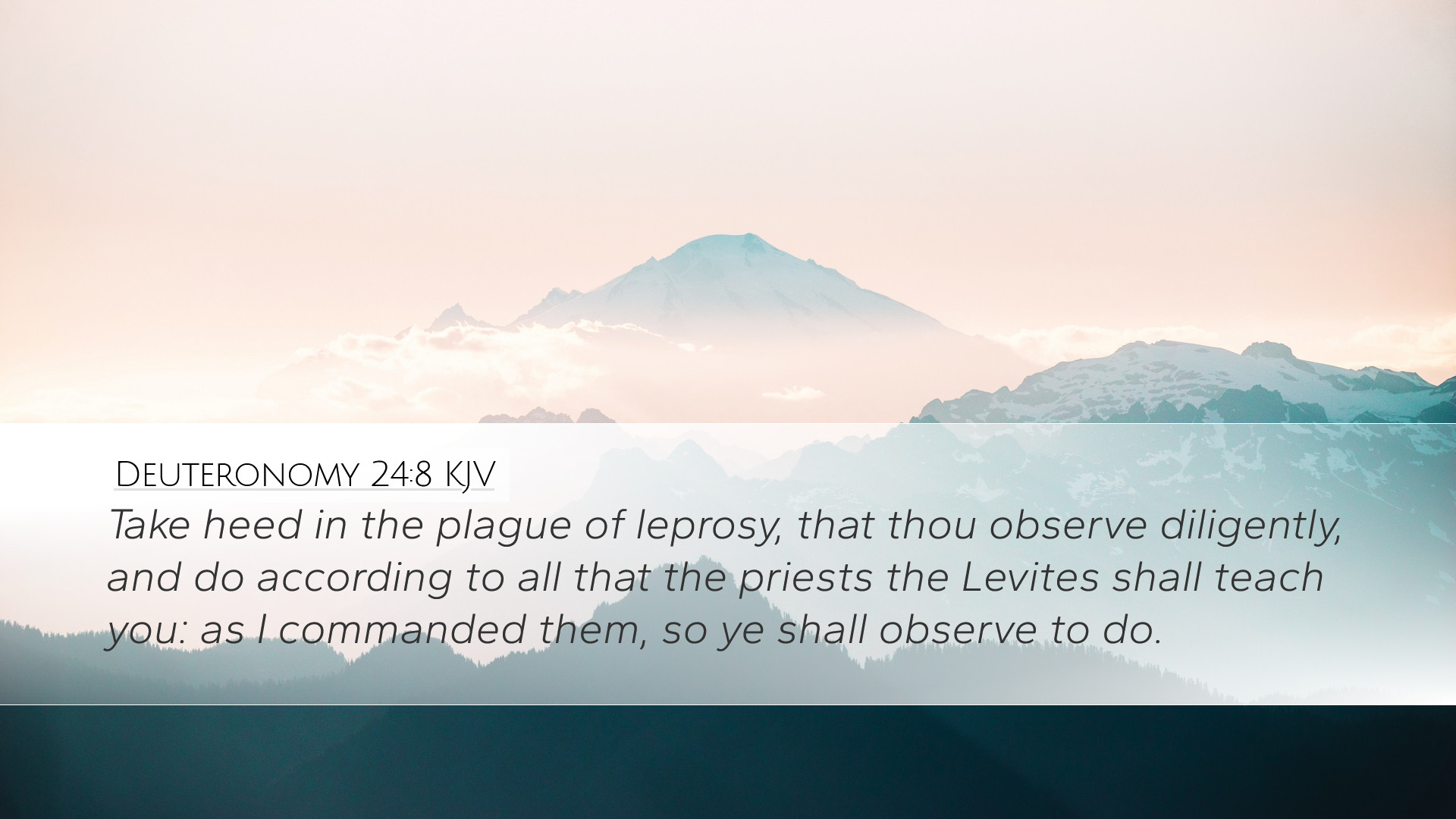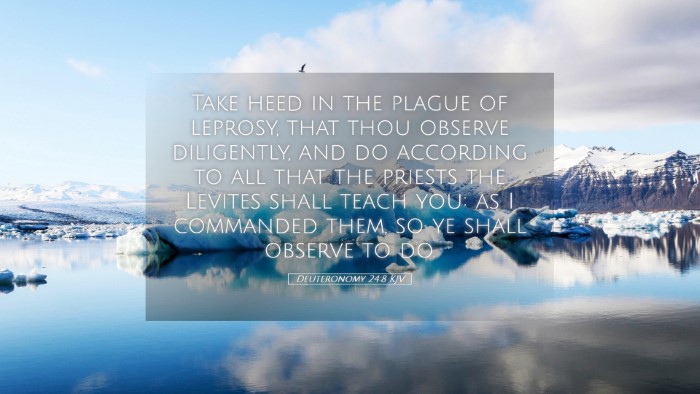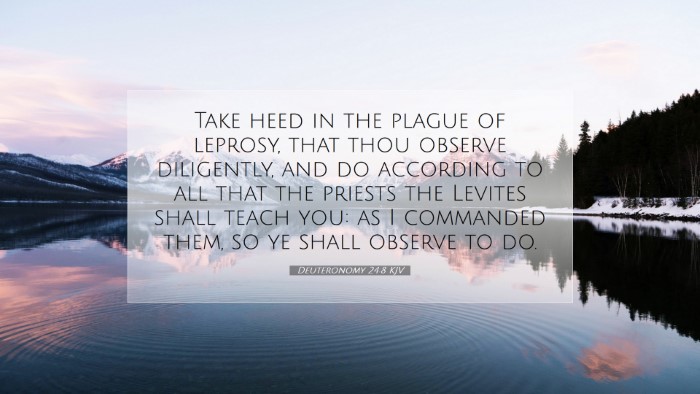Commentary on Deuteronomy 24:8
Verse Overview: Deuteronomy 24:8 states, “Take heed in the plague of leprosy, that thou observe diligently, and do according to all that the priests the Levites shall teach you: as I commanded them, so ye shall observe to do.” This command emphasizes the role of the priests and the importance of vigilance in matters of ceremonial cleanliness and health. It also highlights the spiritual implications of physical ailments and the necessity of obedience to divine law.
Contextual Background
This verse comes from a section in Deuteronomy which outlines various laws and commandments given to the Israelites. The preceding chapters discuss moral, social, and ceremonial laws intended to guide the Israelites in living a life that reflects their covenant with God. Understanding the cultural and historical background is essential for grasping the gravity of the verse.
Historical Significance of Leprosy
Leprosy, in biblical times, referred broadly to various skin diseases. Those afflicted bore not only physical burdens but social stigmas as well. The laws surrounding leprosy were fundamentally about purity and community health. The priests, serving as mediators between God and the people, were responsible for diagnosing these diseases and prescribed the necessary rituals for healing and re-entry into society.
The Role of Priests
The priests and the Levites had a dual function in the ancient Israelite community: they were both spiritual leaders and health inspectors. The faith and practices of the people hinged on their adherence to these guidelines provided by the priests, grounded in divine instruction.
- Authority of the Priests: The verse notably emphasizes obeying the priests' instructions, illustrating their authoritative role in maintaining the spiritual and physical well-being of the community.
- Divine Command: “As I commanded them” reinforces that the laws given were direct commands from God, elevating their importance beyond mere human tradition.
Lessons for Today's Believers
The teachings found in this verse have enduring applications for contemporary believers, particularly in the realms of community health, spiritual vigilance, and obedience to divine instruction.
Spiritual Vigilance
Just as the Israelites were instructed to be diligent in observing signs of leprosy, modern believers are called to be vigilant in identifying sin and disobedience within themselves and their communities. This diligence reflects a heart committed to holiness and purity.
Obedience to Spiritual Authority
In a practical sense, this verse teaches that believers must respect the authority of spiritual leaders. Pastors and church leaders today play critical roles similar to those of the priests in ancient Israel, guiding congregations in matters of faith and lifestyle choices.
Commentary Insights
Matthew Henry’s Perspective
Matthew Henry highlights that this verse exhorts the people to heed the priests’ instruction carefully. He emphasizes that the prevalence of diseases like leprosy serves as a reminder of the effects of sin in a person's life. The priest's role extends beyond mere diagnosis to offering a path toward restoration, symbolizing Christ's redemptive work.
Albert Barnes’ Take
Albert Barnes elaborates on the implications of this verse concerning the authority of the priests. He notes that strict adherence to their teachings prevents the spread of sin and its consequences within the community. Barnes also draws parallels to the need for church accountability in addressing moral failures among believers today.
Adam Clarke’s Commentary
Adam Clarke underscores the necessity of obedience to the law given by God through the priests. He also discusses the social aspects of leprosy and how it can symbolize any form of spiritual malady that leads to isolation from God. Clarke encourages believers to examine their lives for signs of spiritual decay and seek guidance from church leaders.
Conclusion
Deuteronomy 24:8 serves as a powerful reminder of the weight of divine authority and the call to a community grounded in purity, health, and obedience. For pastors, students, theologians, and Bible scholars, this verse provides rich material for reflection on the interplay of spiritual leadership and collective responsibility in maintaining the health of the faith community. As the Israelites were instructed to heed their priests’ warnings, so too should modern believers listen to their spiritual leaders, always aiming for a life reflective of God’s holiness.


